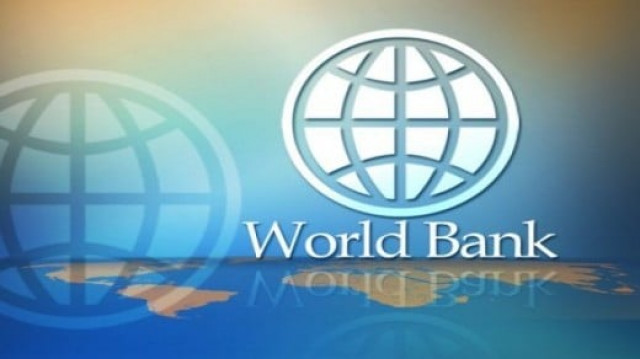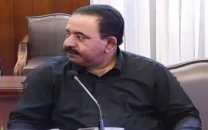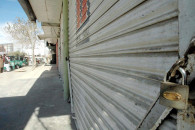World Bank discontinues aid for AIDS
World Bank refused to give Pakistan the Rs1,740 million it had approved in a feasibility report for the SACP.

According to the official, the World Bank has refused to give Pakistan the Rs1,740 million it had approved in a feasibility report for the SACP, which had already been initiated. Fearing a pause in the progress of the programme, however, SIndh Health Minister Dr Sagheer Ahmed had sent a summary to the Sindh chief minister, in which he has asked for Rs50 million for the continuation of treatment of patients under the programme.
According to the SACP, 1,050 out of the 3,600 Aids patients reported under the programme are being treated free of charge. Meanwhile, half of the 97,500 Aids patients who been reported across the country are from Sindh.
Meanwhile, Aids patients from Sindh as well as their families have announced their participation in the march that is to take place in Islamabad on December 1 to mark World Aids Day. The march is being held in protest against a discontinuation of funding for the treatment of HIV/Aids.
It must be mentioned that Rs30 million had been issued to the Sindh government between January and June for the treatment of HIV patients in the province. However, after workers under the SACP could not be paid in the latter half of the year due to a shortage of funds, it was reported that the Sindh government had issued a further Rs10million to continue the operational services.
2,000 patients being taken care of across the country
More than 2,000 HIV patients are being taken care of at least 13 HIV treatment and care centres across the country. Of these, around 1,260 Aids patients are on life-saving anti-retroviral therapy, said the adviser to Sindh chief minister on information, Sharmila Farooqui, at a workshop in connection with World Aids Day (WAD) at the Newport Institute of Communication and Economics (NICE).
The National Aids Control Programme (NACP) and its provincial counterparts are mostly responsible for implementing the “enhanced HIV and Aids control programme” together, Farooqui added.
This year’s WAD campaign, launched by NACP on November 15, will continue till December 15.
The principal components of the campaign include interventions for target groups, the prevention of HIV transmission through blood and blood products as well as capacity building and programme management.
According to UNAIDS, there are 33.3 million people living with HIV all around the world, 2.5 million of whom are children, said Farooqui, adding that Pakistan has an estimated 97,400 HIV patients.
The epidemic is rapidly spreading among the “risk groups, such as injecting drug users and male sex workers,” she said.
This year’s WAD theme of “universal access and human rights” concentrates on the protection of human rights as a fundamental tool in combating the global HIV and Aids epidemic.
“Violation against human rights...put marginalised groups, such as injecting drug users and sex workers, at a higher risk of HIV infection. By promoting human rights, new injections can prevent the spread of the virus and people who have HIV/Aids can live [free] from discrimination,” said Farooqui, who also appealed to people to wear red ribbons on WAD to mark the occasion.
The government is working on a document that suggests health reforms as a means of reducing poverty.
This document envisages a “healthy and productive” population that actively contributes to the overall socio-economic development of the country. It also states that the government is committed to develop the capacities of its people by “financing and implementing a community-based strategy”, said Farooqui.
The existing health policy gives priority to the prevention of HIV (both among the people who face greater risk of contracting the virus as well as the general population) by building a strong and sustainable partnership with the civil society, the adviser added.
NICE rector Dr Huma Bukhari said that WAD provides an opportunity to individuals, communities and political leaders to take action to ensure that human rights are protected and global targets for HIV/Aids prevention treatment are met. She also highlighted the role of educational institutions and the youth in “advocacy prevention and Aids Education”.
WITH ADDITIONAL INPUT FROM PPI
Published in The Express Tribune, November 30th, 2010.



















COMMENTS
Comments are moderated and generally will be posted if they are on-topic and not abusive.
For more information, please see our Comments FAQ